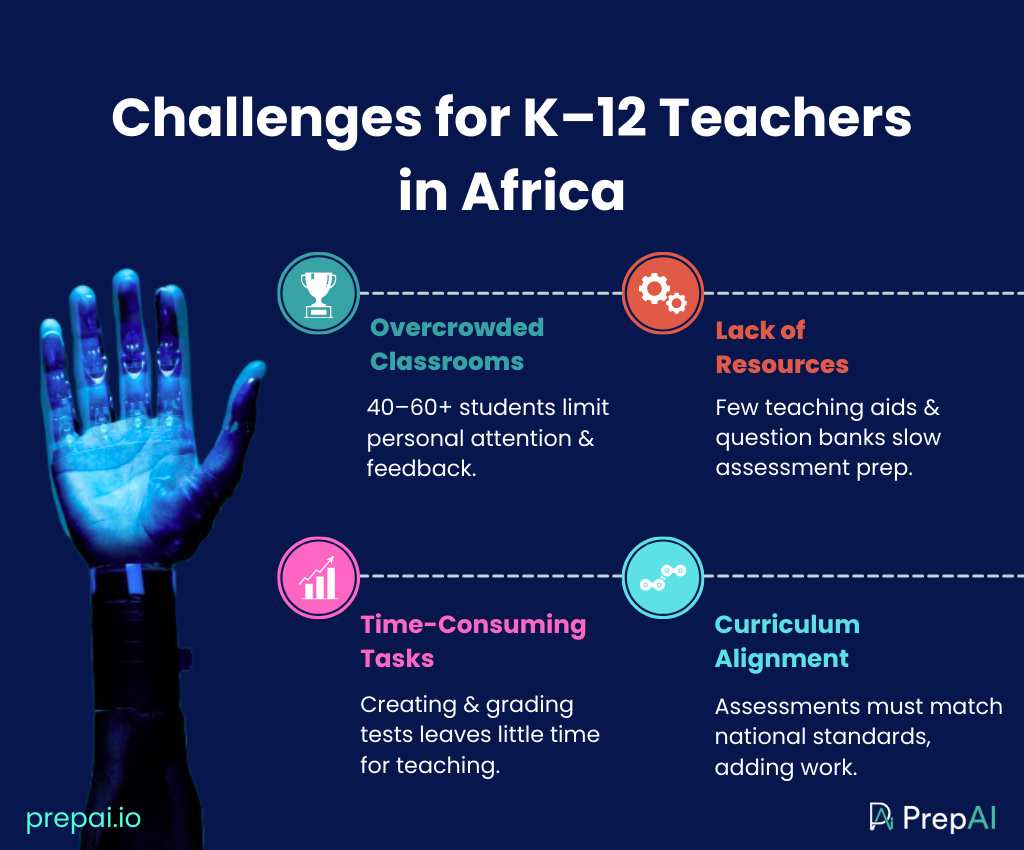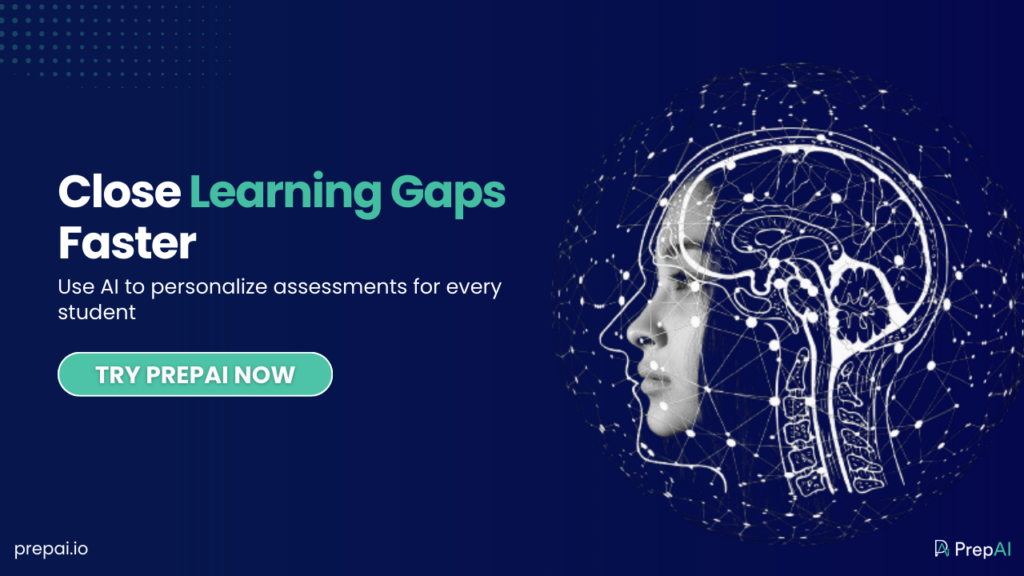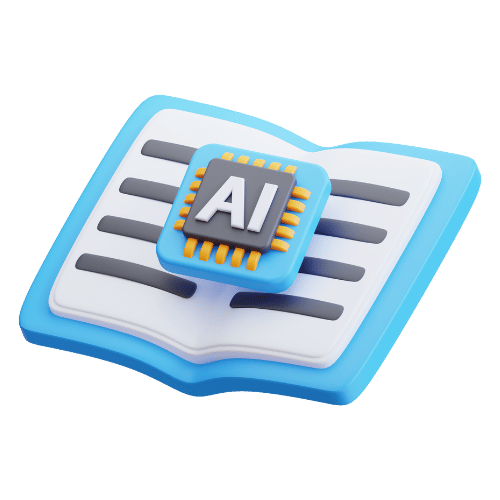Instant assessments are the methods or tools that create digital assessments, like functional and technical ones, in no time using AI. It helps students gain deeper knowledge on various topics and allows educators to address their teaching techniques and address learning gaps. Let’s understand more about instant assessments and how they are a game changer in education.
The classroom management system is at the forefront of shifting in this digital age. These frameworks enable teachers to efficiently integrate education technology for schools and pedagogy to design dynamic virtual classrooms and customize learning experiences for students. Platforms that facilitate analytics, auto-grading, and interaction with educational systems include Edves, Testmoz, and Google Forms. Ethiopian public secondary schools are testing a hybrid approach that creates performance dashboards by integrating AI-based tools with handwritten tests.
According to one Abuja head of school, utilizing digital assessment solutions has reduced grading time by 70%, freeing up more time for instructors to organize lessons and educate students. When educators focus on instant assessments, they can boost students’ engagement and motivation through gamified experiences and save significant time for the teachers. Embracing technology will make life easier for both students and teachers, thus allowing them to enhance their production and efficiency.
This transformation is fueled by a mix of issues: crowded classrooms, poor teacher-to-student ratios, and diminished access to physical learning materials paired with the thrilling prospects for learning with digital tools like PrepAI that can help educators with assessment automation in education. Let’s explore how generating instant assessments is a game changer for K-12 teachers.
The Challenges K-12 Teachers Encounter in Africa
When focusing on traditional assessment, it may take a few days to prepare, administer, and grade. In the past, evaluating students’ comprehension has been time-consuming and resource-intensive, particularly in places like Africa, where teachers have to teach packed classes with few instructional aids and extreme time constraints. Some of the challenges Africa K-12 educators encounter are:
High Student-Teacher Ratio
With 40-60+ kids in many classrooms, it is practically impossible to provide customized attention. Teachers are almost unable to monitor student progress, provide timely feedback, or provide individualized attention as a result. In overcrowded classrooms, advanced students are frequently left unchallenged while weak students fall behind.
Limited Teaching Resources
It is frequently difficult to obtain high-quality teaching aids, question banks, and standardized testing resources. The teachers cannot prepare personalized assessments for every student as per their capacity. Many educators use outdated resources or must start from scratch when creating assessments for students, which takes up their valuable time.
Time Constraints
Teachers lose valuable time that could be used for lesson planning and student involvement when they spend so much time creating tests, quizzes, and grades. This workload decreases the time teachers can spend on interactive learning and offering face-to-face student support. Often, this translates into teacher burnout and, eventually, decreased effectiveness in the classroom.
Need for Localized Content
Assessments frequently need to be adapted to national curricula, such as the CBC in Kenya, the CAPS in South Africa, or the NECO framework in Nigeria. As a result, assessments must be customized according to national standards in addition to subject and grade level. Creating assessments that are both curriculum-aligned and responsive to the learning levels of their students is a common challenge for educators.

How are Instant Assessments Resolving these Challenges?
By using classroom assessment tools like PrepAI, teachers can aid in promoting collaborative learning and establish an environment where students can grasp according to their capacity. With instant assessment generation, students can facilitate more authentic assessments that more closely resemble real-world scenarios and practice as many assessments as they want according to their interest and knowledge. With instant assessments, both educators and students can:
Prepare and Plan Weekly Mini Tests
Short and frequent is better than long and infrequent in building mastery. Weekly low-stakes quizzes are more effective than the traditional midterms. A study conducted in the Gauteng Province of South Africa showed that students subject to weekly mini-assessments performed 19% better on their end-of-term assessment compared to those who did not receive the mini-assessments.
When educators plan weekly assessments for students, they can help them learn easily. Both teachers and students can make mini tests in a variety of formats (like MCQ, fill-in-the-blanks, true/false, and subjective) using tools like PrepAI. These mini tests can easily be generated from their own content uploaded in different formats (video, audio, text, URL, and more). Thus, AI assessment tools for K–12 will help educators ease their workload and students grasp more topics in a better way.
Innovative Approaches to Assessment
Instant assessments add not only speed but also the ability to assess the learning of students in more meaningful and engaging ways. Instead of relying solely on traditional multiple-choice assessments, teachers can create scenario-based questions to assess the extent to which students can apply knowledge to real-world scenarios. These AI-based tools can also create gamification quiz prompts to allow assessments to become interactive competitions, which increase motivation and student engagement in classrooms.
Teachers can create quick checks that allow peer-to-peer questioning, where one learner can create questions using AI tools, stimulating learning in a collaborative environment. Most importantly, instant assessments can be adjusted for difficulty levels (easy, medium, or hard), allowing teachers to measure struggling and more advanced learners in the same class.
Teaching with Real-Time Feedback
Suppose you are teaching a class about how to drive a car or any specific topic but only providing feedback after they have fallen 4 times. This is like delayed feedback, which will not help students immediately. Today’s learners, particularly digital natives, want immediate feedback. Students are able to reflect, adapt, and get better on the go when they receive real-time feedback. Tools like PrepAI have the ability to generate instant insights into student performance, showcasing which concepts students have mastered and where they are struggling.
Using these tools, conducting online exams and technical assessments becomes easy, which allows students to learn about various topics instantly and in real time. The education technology for schools allows teachers to immediately adapt their lessons, revisit difficult topics, and personalize support for different learners. Thus, AI tools can reduce the learning gaps because they won’t leave students behind and will make every classroom session into an opportunity for learning.
Save Time and Personalize Learning
With digital assessment solutions, both teachers and students gain different benefits.In the case of teachers, they can generate a variety of assessments in different formats (true/false, MCQ, quizzes, fill-in-the-blanks, HOTS, subjective questions). The educators can create formative or functional assessments after they teach some topic in the class. The instant assessment generation with AI allows teachers to understand which student is lacking in which subject and help students grasp the same subject.
In addition to saving time, tools like PrepAI help students facilitate tailored learning by automatically generating questions with different levels of difficulty (easy, medium, and hard), which students can adjust according to their skills. Africa’s vast, diverse classrooms guarantee that advanced students remain challenged while those who want additional help receive tests that are appropriate for their level.

At the End
Technology is revolutionizing education by creating radically new teaching methods and providing the possibility of universal access to high-quality learning opportunities. Digital assessment tools like PrepAI make education easier and supportive for both students and educators.
Technology is changing how we assess learning and provide greater access, creativity, and quality in learning outcomes. Technology-based assessment tools and assessment techniques include a variety of assessment possibilities, including digital platforms in which learners can take standardized assessments online to assess quality, impact, and learning.



